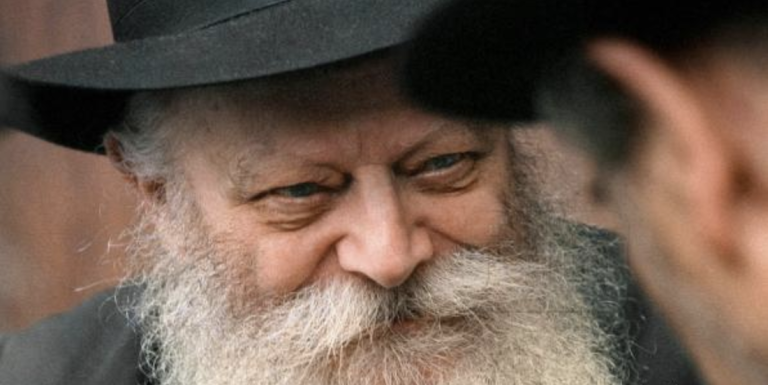
New York, N.Y. – The streets of Manhattan pulse with energy, a mosaic of cultures, beliefs, and ambitions. Among the cacophony of yellow taxis and hurried pedestrians, the Chabad Lubavitch movement stands out with its unmistakable presence.
From Mitzvah Tanks rolling through Midtown to collection jars at local delis like Pick-A-Bagel, their outreach is bold and unapologetic.
Yet, for all their visibility, their approach—particularly their efforts to draw Reform and Conservative Jews toward Ultra-Orthodox practices and the messianic beliefs tied to Rabbi Menachem Mendel Schneerson—sparks unease among those who champion tolerance but find themselves questioning the movement’s methods.
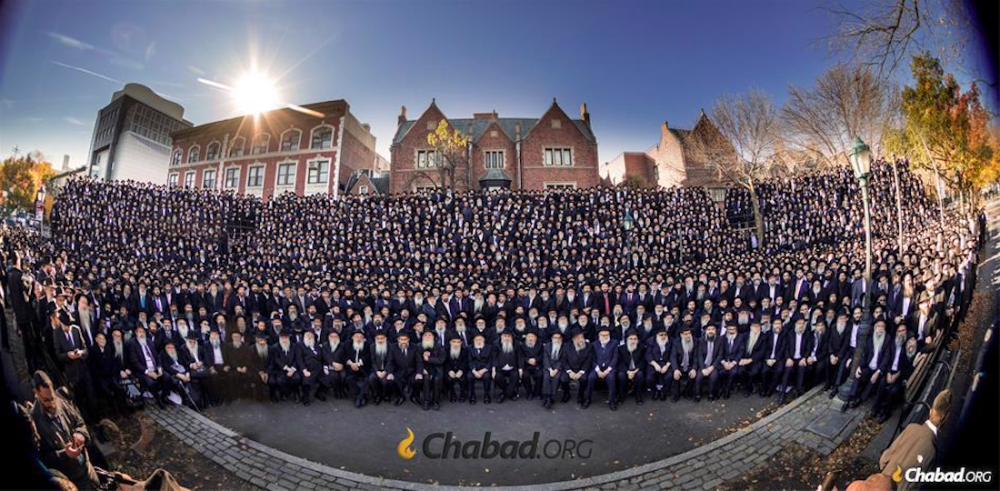
Balancing Tradition and Tolerance in a Diverse City
Chabad Lubavitch, a global Hasidic movement, has long been a fixture in New York City, with its headquarters at 770 Eastern Parkway in Brooklyn.
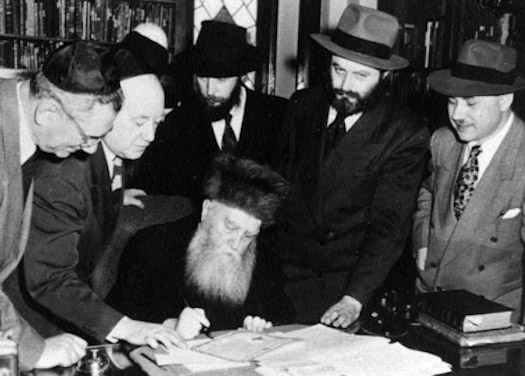
Known for its commitment to Jewish outreach—proselytizing—the organization seeks to inspire Jews of all backgrounds to embrace their heritage through acts of kindness, prayer, and study.
However, their approach—particularly the use of Mitzvah Tanks, mobile outreach centers that encourage passersby to perform mitzvot (religious commandments)—has drawn criticism for targeting Reform and Conservative Jews with an Ultra-Orthodox agenda.
The sight of these vans, often parked near busy intersections, can feel like an aggressive push to some, raising questions about whether such efforts respect the diversity of Jewish identities.
The movement’s collection jars, spotted in places like Pick-A-Bagel, add another layer of complexity. These jars, meant to fund Chabad’s initiatives, sometimes confuse non-Jews who may not understand their purpose.
To an outsider, they might appear as general charity drives rather than religious fundraising, leading to accusations of opacity. For a city that prides itself on inclusivity, these visible tactics can feel out of step with New York’s pluralistic ethos.
The Messianic Question and 770 Eastern Parkway
At the heart of Chabad’s identity lies 770 Eastern Parkway, the movement’s spiritual and administrative hub. This unassuming red-brick building in Crown Heights is more than an office—it’s a symbol of Chabad messianism, a belief held by some followers that Rabbi Menachem Mendel Schneerson, the seventh Rebbe who died in 1994, is the Messiah.
This faction, though not representative of all Chabad adherents, holds that Schneerson will return to usher in the Messianic Age, a belief that has made 770 Eastern Parkway a pilgrimage site for devotees. This messianic fervor, while deeply meaningful to believers, unsettles others within and outside the Jewish community.
Critics argue that it risks alienating Jews who do not share this view, particularly those from Reform or Conservative backgrounds who may already feel pressured by Chabad’s outreach. The belief’s prominence at 770 Eastern Parkway has also fueled perceptions of insularity, as the building serves as a focal point for those who see Schneerson as a divine figure, sometimes to the exclusion of broader Jewish dialogue.
Tolerance Tested: The Paradox of Intolerance
The tension surrounding Chabad’s methods highlights a broader paradox: the commitment to tolerance can falter when confronted with practices perceived as intolerant.
New York City, a melting pot of ideologies, thrives on mutual respect among its diverse inhabitants.
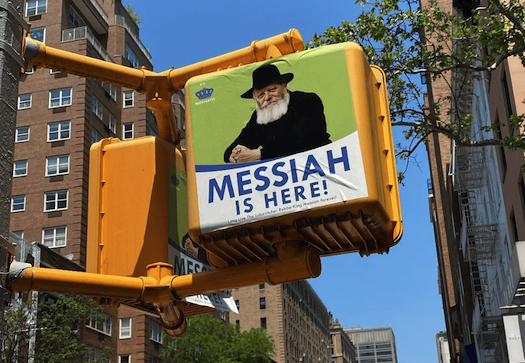
Yet, Chabad’s assertive outreach—whether through Mitzvah Tanks or public displays of faith—can feel like a challenge to that ideal.
For some, the movement’s push to bring Jews closer to Ultra-Orthodox observance disregards the validity of other Jewish denominations, creating a sense of exclusion.
This discomfort is compounded by the collection jars, which, while innocuous to some, strike others as a subtle overreach into public spaces.
The jars’ presence in secular settings like Pick-A-Bagel can blur the line between religious outreach and commercial interaction, leaving non-Jews and even some Jews uncertain about their intent.
In a city where clarity and authenticity are valued, such ambiguity can erode trust.
At its core, the critique of Chabad’s approach is not about denying their right to practice or share
their faith. Rather, it’s about the balance between outreach and respect for individual choice.
The movement’s supporters argue that their work strengthens Jewish identity in a world where assimilation is a constant threat. Critics, however, see a fine line between inspiration and imposition, particularly when outreach targets specific groups with a prescribed vision of Jewish life.
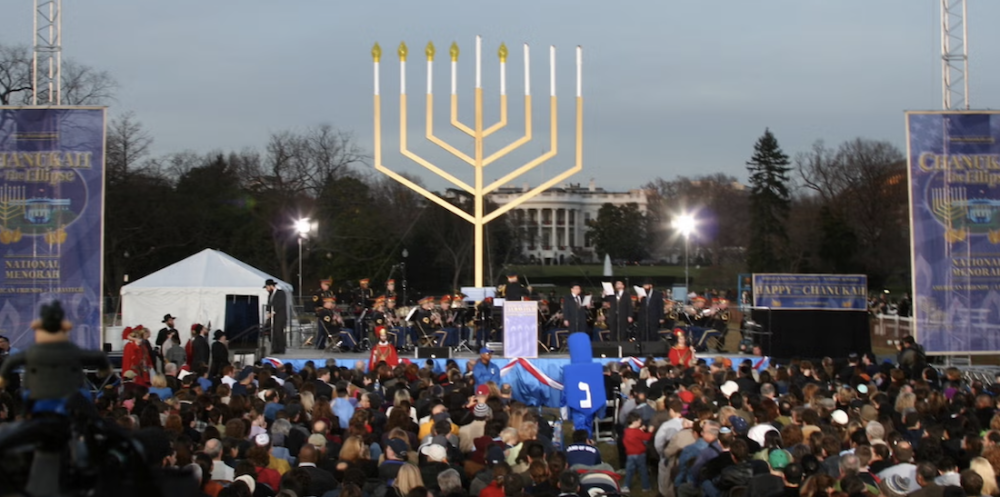
A Path Forward: Dialogue Over Division
The challenge posed by Chabad’s presence in Manhattan is not insurmountable. Dialogue, rooted in mutual respect, could bridge the gap between the movement’s mission and the city’s pluralistic values.
By engaging with Reform and Conservative communities as partners rather than targets, Chabad could foster a more inclusive approach to Jewish outreach.
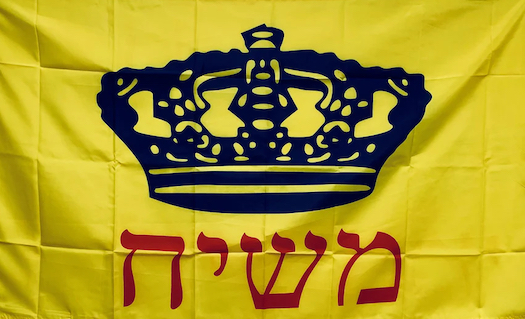
Transparency about their fundraising—perhaps through clearer labeling on collection jars—could also dispel confusion and build goodwill among non-Jews and Jews alike.
Moreover, the messianic beliefs tied to Rabbi Schneerson and 770 Eastern Parkway need not define the movement’s public face.
While these beliefs are deeply held by some, emphasizing Chabad’s broader contributions—like educational programs, community service, and disaster relief—could soften perceptions of exclusivity.
By focusing on shared values, such as charity and community, Chabad could align its mission more closely with New York’s spirit of coexistence.
Ultimately, the tension surrounding Chabad Lubavitch reflects the broader challenge of navigating faith in a diverse society. Tolerance, as a principle, demands flexibility and self-awareness.
For Chabad, this might mean rethinking how their outreach is perceived by those outside their fold. For critics, it means engaging with the movement’s intentions rather than dismissing them outright. In a city as dynamic as New York, finding common ground is not just possible—it’s essential.
Religious Tolerance: Chabad’s Outreach Sparks Debate in Manhattan (July 28, 2025)
Summary for audio file
In New York City, Chabad Lubavitch’s bold outreach, including Mitzvah Tanks and collection jars, sparks debate over tolerance and religious identity. While their efforts aim to strengthen Jewish heritage, critics argue they target Reform and Conservative Jews with Ultra-Orthodox beliefs. The messianic faction, centered at 770 Eastern Parkway, adds complexity, raising questions about inclusivity. Dialogue and transparency could bridge divides, aligning Chabad’s mission with the city’s pluralistic values in a spirit of mutual respect.
#ChabadLubavitch #NewYorkCity #JewishOutreach #MitzvahTanks #770EasternParkway #ReligiousTolerance
Tags: Chabad, Lubavitch, Mitzvah Tanks, 770 Eastern Parkway, Rabbi Schneerson,
Messianic Age, Reform Judaism, Conservative Judaism, tolerance, New York City
